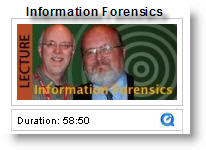
Developing Depth of Research: The Invisible Web Databases
Index page of deep weeb (invisible web) resources. Searching databases that aren't indexed by the major search engines yield better resources.. when you know where and how to look. From Noodle Tools, a quality informaiton literacy provider.
Google Librarian Central - Tools
PDF posters for librarians detailing Google features.
Center for Social Media at American University
The Center for Social Media showcases and analyzes strategies to use media as creative tools for public knowledge and action. It focuses on social documentaries for civil society and democracy, and on the public media environment that supports them. The Center is part of the School of Communication at American University.
Website Evaluation Wizard (21st Century Information Project
This is a 10 step website evaluation wizard to help guide in-depth investigation of a web resource.
21st Century Information Fluency Project
Moodle course site for the Information Fluency Project. Inexpensive online courses dealing with searching, website evaluation, google docs
YouTube - The Cost of Copyright Confusion for Media Literacy
Take 5 minutes and open your mind to a new way of thinking about copyright and fair use. It's time for educators to understand fair use as a protection and a mandate to use copyrighted materials to promote the greater good.
UC Berkeley Video Lectures on Search Technologies.
YouTube based university channel: Playlist: SIMS 141 - Search Engines Description: Search Engines: Technology, Society, and Business.
A collaborative distance education model that will increase the quality, access, and diversity of online education opportunities in Library and Information Science.
Carl Heine's terrific blog about searching. Look for practical hands on examples of how to search that you can use in your own professional practice.
21CIF: 21st Century Information Fluency
21st Century Information Fluency Project Online Course Page: Lists 1 - 4 week courses in search skills and google docs
Writing, Reading, and Social Media Literacy - Now, New, Next
Howard Rheingold: Learning to use online forums, be they social network services like MySpace and Facebook, blogs, or wikis is not a sexily contemporary add-on to the curriculum - it's an essential part of the literacy today's youth require for the world they inhabit.
Boolify Project: An Educational Boolean Search Tool
A search engine that prompts the user to graphically assemble a query using a drag and drop puzzle interface. Clever and it does made the basic boolean operations more clear.
CyberSmart! Student Curriculum
K-12 Student Curriculum Free to educators, the CyberSmart! Student Curriculum empowers students to use the Internet safely, responsibly, and effectively. Of particular interest are the activities for k-4. Professionally produced materals!
Online science information literacy tutorial. Flash based tutorial with animations that explains searching within the context of science.
UCF Information Fluency Initiative: ACRL Standards
ACRL Literacy Standards and Outcomes. The University of Central Florida is a leader in information fluency and information literacy graduate work. Their standards help define the skill set.
21st Century Information Fluency
Five things every child should understand about online searching before starting Middle School. New work from Carl Heine with simple one screen explanations and examples.
21st Century Information Fluency
Here's a sampling of web sites focused on children and the Internet, teaching children to use the Internet, Internet safety and citation and more. Fresh work from Carl Heine!
New resources created by Carl Heine for the 21cif project
Posted from Diigo. The rest of Information Fluency group favorite links are here. Feel free to join our group!








































